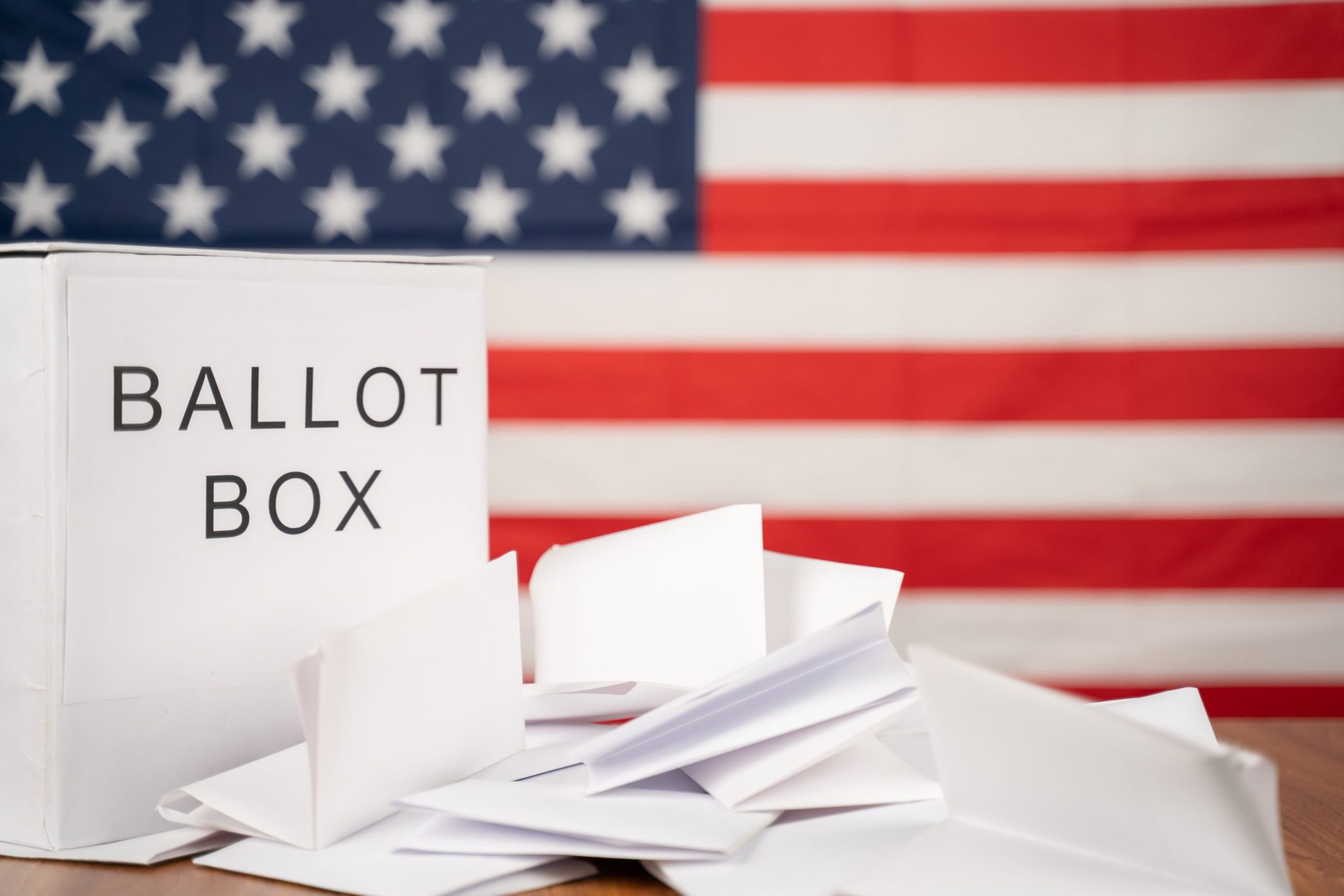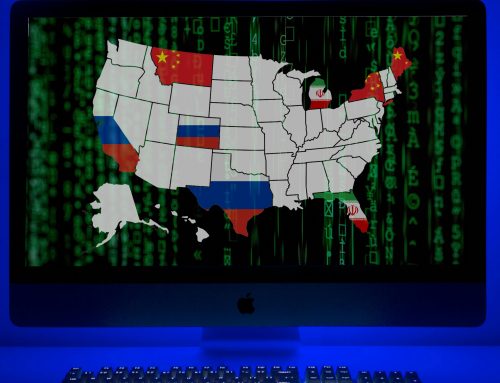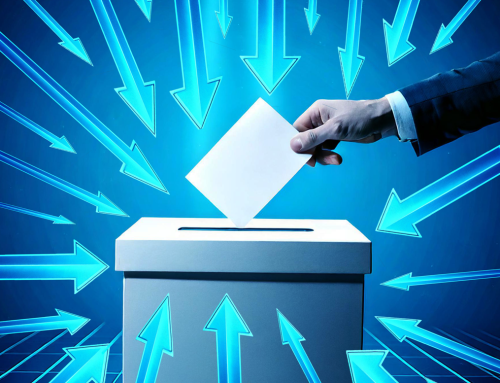ASD’s Elections Integrity Fellow David Levine and the Center for Democracy and Technology‘s Senior Technologist in Elections and Democracy William T. Adler urge President Biden to establish a bipartisan presidential commission to recommend ways to restore public trust in democracy.
Introduction
The deadly events of January 6, 2021 have made it abundantly clear that there is a severe crisis of trust in American democracy.
The thousands of rioters who stormed the Capitol building and disrupted the Congressional certification of the election had their anger stoked by repeated unproven claims about the 2020 presidential election. Five people died in the insurrection, including two Capitol Hill police officers. Despite no evidence of major successful attacks on our election infrastructure or voter fraud on a scale that could change the outcome of the election, confidence in the 2020 presidential election results is sharply divided along partisan lines.
A functioning democracy depends on widespread trust in its electoral systems. As President Biden begins his term, one major task for his administration and leaders across the country is to understand why so many Americans refuse to accept the results of the election, and to take steps to bolster trust in democracy.
After years of domestic and foreign attacks intended to sow distrust in democracy, rebuilding trust will be neither fast nor easy. But as a first step, the President should issue an executive order (EO) establishing a Presidential Commission on Election Resilience and Trust (PCERT).
The Commission would identify best practices and make recommendations to ensure that more Americans believe our elections are legitimate. In 2013, President Obama established a Presidential Commission on Election Administration (PCEA), which produced recommendations that ultimately were widely adopted. The successful PCEA can serve as a blueprint for how this new commission can effectively address the problems of today.
We suggest this Commission focus on the following three topics, at a minimum:
- Best practices for bolstering trust in elections, such as more widespread adoption of robust post-election audits, which can increase voter confidence in election outcomes regardless of who wins;
- Best practices for countering false information from foreign and domestic actors that undermines confidence in election integrity; and
- How and whether to make permanent some of the administrative and policy changes state and local officials made in response to the coronavirus pandemic, such as expansion of absentee voting, early voting, and others.
There appears to be growing bipartisan support for tackling these challenges. The Capitol siege should serve as a call for the parties to transcend partisan divisions and work together. The Commission will not solve all the problems that ail our democracy, but its recommendations should lay the groundwork for a more informed, rational, and sober discussion of these issues.
The Commission should ultimately present a series of recommendations for election officials, lawmakers, members of the media, civic leaders, social media platforms, and others aimed at improving U.S. election administration and voter confidence.
Establishment
President Biden should establish the Commission early in his first term. The Commission will need at least six months to hold public meetings, conduct research, engage with a wide range of stakeholders, and submit a final report. Given the pandemic, this review may take longer than expected. However, the report should be published by the end of 2021, in order to leave time for implementation in the 2022 midterm elections.
Membership
The Commission’s success depends, in part, on its membership. As the bipartisan co-chairs of the PCEA, Bob Bauer and Ben Ginsburg, previously noted, one reason for the PCEA’s success was that its membership drew from both the public and private sectors. It included people who had experience running elections as well as people from private industry with relevant experience. PCERT should similarly include—in addition to election officials—experts on mis- and disinformation and national security who have a keen understanding of how false information can undermine democracy.
Since election-related disinformation is often intended to intimidate specific groups and reduce their likelihood of voting, such experts on this commission should have experience studying the disproportionate impacts of election-related disinformation on vulnerable populations, including racial minorities, immigrants, women, and the economically disadvantaged. PCERT should look like America, with representation from a diverse set of racial and ethnic groups as well as from historically marginalized and disenfranchised peoples. This will help ensure that it addresses both substantive and perceptual concerns around our elections that prevent broader swaths of the population from trusting the integrity of our elections.
The Commission should also have a research director to coordinate its research, as the PCEA did. This research director should have experience studying election administration, election security, the media, and the ways in which these all interact to affect public trust.
It’s also important that the Commission have bipartisan membership to help ensure buy-in across the political spectrum. This could start with having two of the Commission’s members serve as co-chairs—one Republican and one Democrat. Such balance should increase the likelihood that the Commission’s recommendations are accepted and implemented by stakeholders across the political spectrum.
PCERT should work diligently to build consensus on its findings. One way to build consensus might be to take some of the most controversial issues—such as the use of voter identification—off the table at the outset, and instead focus on determining best practices in election integrity that might garner broad support. Part of the PCEA’s success was due to its wide support across the political spectrum and the unanimous support its recommendations received from commission members of both parties.
Mission
We recommend that the Executive Order define the mission of the Commission as follows:
The Commission will identify best practices and otherwise make recommendations to improve understanding of the electoral process and promote voter confidence so that more people across the political spectrum recognize elections as legitimate.
As part of its mandate, the EO should also specify particular topics for the Commission to consider as appropriate. Three suggested topics are proposed below, though the EO does not need to define this level of detail.
Steps to Bolster Election Integrity
In recent years, lawmakers, election officials, cybersecurity officials, and advocates have made significant progress in securing election systems against foreign and domestic attack. For instance, the number of states with jurisdictions using insecure electronic voting machines without a paper trail has decreased from 14 in 2016 to just eight in 2020. And the 2017 federal designation of election infrastructure as “critical infrastructure” has enabled increased federal cybersecurity support to election officials, which has been received positively by state election officials.
But while major improvements have been made, there still remain vulnerabilities in our election infrastructure that could be exploited by an attacker seeking to disrupt an election. Several states have yet to replace all of their outdated paperless voting equipment. All election officials should also ensure that they have backups of critical components of election infrastructure such as voter registration databases and electronic pollbooks to continue functioning after an attack. Risk-limiting audits, which provide confidence that the election outcome was correct and protect against malicious attacks and technical errors, have not yet been widely adopted. PCERT should examine why some jurisdictions lag in making necessary improvements and make recommendations about how to improve election security expeditiously.
The weaknesses in election infrastructure have been thoroughly documented and discussed before, perhaps most comprehensively in the 2018 National Academies of Sciences, Engineering, and Medicine report, “Securing the Vote.” But the Commission should still take up election integrity as part of its mission for at least two reasons.
First, evidence of even a minor attack on election infrastructure could be enough to create uncertainty about the integrity of an election. Secure election infrastructure is the foundation for public trust in elections.
Second, considering and reviewing recent developments in election security would underscore that security is an ongoing process, not an endpoint. As evidenced by the recent Russian attacks on federal agencies—which the federal government failed to detect—cyber attackers are constantly improving their methods. The election security community must always work to stay one step ahead of attackers and anticipate weaknesses that could be exploited.
Best Practices for Countering False Information
Despite the absence of widespread voter fraud or major cyber attacks in the 2020 elections, false information ran rampant in the pre- and post-election periods. The Commission should study and make recommendations about efforts to counter election-related mis- and disinformation, which undermine confidence in our democracy. Understanding how to effectively counter false information will require an all-hands approach involving election officials, members of the media, and social media stakeholders.
Due in part to the pandemic, Americans’ usage of social media has increased dramatically, perhaps increasing their exposure to false information online. Voters in swing states were exposed to more election-related falsehoods than in other states, likely indicating the effects of targeted disinformation and misinformation campaigns such as the Russian “active measures” disinformation campaigns of 2016.
Combating online mis- and disinformation is a complicated challenge. Experts are in general agreement that the best way to counter false information is to “flood the zone” with trusted information from widely respected and credible messengers. This can take the form of proactive civic education efforts with prospective and eligible voters as early as possible. It can also involve “pre-bunking” false narratives before they emerge. And it can involve real-time debunking, as we saw in the Cybersecurity and Infrastructure Security Agency (CISA) “Rumor Control” page, which hosted rapid and thorough debunkings of election-related misinformation. The Commission should study the effectiveness of efforts like these in order to make recommendations about how to best provide trusted information.
State and local election officials can also be an important source of reliable information, especially if they cultivate a presence in both traditional and social media. Officials can increase their trustworthiness by having their accounts verified on social media platforms and using a trusted .gov domain for their website. The Commission should determine the degree to which election officials leveraged their trusted status to put out reliable information and counter damaging misinformation during the past cycle, and what else could be done to support these types of efforts.
This year also featured social media companies changing their products in ways intended to slow the spread of misinformation. Twitter added “friction” to user-facing aspects of its product, such as by prompting users to add context before retweeting. After Election Day, Facebook altered its news feed to highlight information from more mainstream news sources. Twitter, Facebook, and Google all took steps to label misinformation on their platforms, an effort that raised concerns among certain lawmakers. But despite controversy over the role of social media companies, the public has been given little insight into whether these measures were actually effective.
The Commission should work with social media companies and those who study them to assess the impacts of policies implemented in 2020. To the extent that there are barriers to enabling independent research on the efficacy of these interventions, the Commission could develop recommendations for ways that social media companies could provide researchers with access to data held by private companies in a privacy-preserving way.
While the use of small-scale media campaigns, local influencers, and community-level ads that spread trusted content can help fight disinformation, it doesn’t fix the deeper structural issues that make certain communities more vulnerable to false information. As Bhaskar Chakravoti, dean of global business at Tuft University’s Fletcher School, has previously noted, some key indicators of vulnerability to such information for U.S. states include political competitiveness, education levels, polarization, and degree of trust in new sources. Marginalized communities, such as Hispanic communities, may also be specific targets of misinformation campaigns. The Commission should examine some of these issues and propose both short and long-term fixes that enable more Americans to be able to both access and rely on trusted information.
Changes Made in Response to the Coronavirus Pandemic
In April 2020, a group of experts published a report, “Fair Elections During a Crisis,” anticipating issues related to the pandemic that could create problems with the administration of, and perceived legitimacy of, the 2020 presidential election. The Commission should evaluate how election officials, media outlets, and social media companies responded to these issues and determine which, if any, of the responses should continue beyond the pandemic.
While the changes made in response to coronavirus were critical to the smooth operation of the election, and may have saved thousands of lives, some changes may be generally applicable even in the absence of a pandemic. For example, many states expanded early voting (by mail and in-person), with the share of voters voting by mail more than doubling since 2016. This expansion of early voting was critical to running an election during a pandemic. But permanently expanding early voting may be a good way to increase access to the ballot, boost turnout, and relieve Election Day pressure on election infrastructure.
The expansion of early voting in 2020 was generally a success and is likely one reason that people voted in record numbers despite the pandemic. But the ways in which mailed ballots were processed and counted may have contributed to false narratives about the election. For example, in some key states, election officials were prevented by state law from processing absentee ballots early. This led to delayed and irregular vote reporting, giving credence to false conspiracy theories about “ballot dumps” being found in the middle of the night. The Commission should study ways to improve absentee voting procedures so false narratives are less likely to proliferate.
The Commission should also study the role of the media in public perception of the election, especially their effectiveness in reporting changes necessitated by the pandemic. While it had been widely known for weeks before the election that the late counting of mail-in ballots in some states would create late movement towards Democratic candidates in the unofficial results (a “blue shift”), some anchors ignored this fact, setting the stage for false narratives about the election being stolen.
Administration
The Commission should hold public meetings and engage with election officials, technical advisors, legislators at the federal, state, local, territorial, and tribal levels, and nongovernment organizations. It may also choose to engage with analogous officials from democratic allies in Europe or elsewhere who have relevant insight into election legitimacy challenges.
The purpose of these meetings should be to assist its members in collecting information and data relevant to its deliberations on the subjects set forth in the Executive Order. They should be held throughout the United States and accessible to individuals with disabilities and those for whom English is not their native language. And in light of the pandemic, they should also be webcast and made available via audio link.
Procedures should also be put in place to allow as many people as possible to safely and securely attend these meetings, whether in-person or virtually. There should also be reasonable processes in place to allow some members of the public to register to speak at these meetings as well as provide written testimony. The Commission should have a staff which supports its functioning, including those tasks mentioned above.





